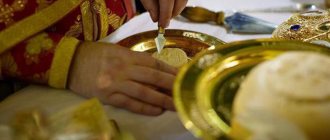Tahajjud prayer is a prayer that is performed after Isha prayer and before dawn. The night Tahajjud prayer, which is performed during the month of Ramadan, is called Tarawih . This prayer is performed after the Isha prayer, but before the Witr prayer. The difference between Tarawih prayer and Tahajjut lies in the number of rakats and the time of performance. They begin to perform Tarawih prayer on the first night of the month of Ramadan, and end on the last night of fasting. It is preferable to perform this prayer at the jamaat in the mosque if it is not possible to visit the mosque. Usually in mosques during Tarawih prayers one juz of the Quran is read in order to completely read the Quran for the month of Ramadan. This is very important because not everyone has the opportunity to read the Quran themselves during this month.
What is possible and what is not allowed in Ramadan? What are the prohibitions, conditions and rules of Ramadan?
Ramadan is one of the main and holy months for Muslims.
This is a time of reflection and spiritual cleansing, but for this, a true Muslim must give up many things for a while: water, food intake, sexual relations. By fasting, believers test the strength of their spirit. Almost everyone is required to fast. But in order to honor traditions and correctly fulfill all the conditions, it is necessary to understand all the subtleties and nuances of the instructions. In general, in order not to break the fast, it is enough to follow two instructions and three conditions. However, there are a huge number of varieties of their implementation. We have collected complete information about the rules of Ramadan, current conditions and prohibitions with explanations of what you can and cannot do, to make it easier for you to prepare for this period.
What is the reward for performing taraweeh (night prayers in Ramadan)
The Messenger of Allah, may Allah bless him and grant him peace, said: “Whoever stood the nights of the month of Ramadan in prayer with faith and hope for Allah’s reward will have his previous sins forgiven.” al-Bukhari 37, Muslim 759
Imam al-Baji said: “This hadith contains a great incentive to perform night prayers in Ramadan, and it is necessary to strive for this, since this act contains atonement for past sins. Know that in order for sins to be forgiven, it is necessary to perform these prayers with faith in the truth of the promise of the prophet (peace and blessings of Allah be upon him) and striving to earn the reward of Allah, moving away from show and everything that violates deeds! See al-Muntaqa 251.
'Amr ibn Murra al-Juhani said: “One day a man came to the prophet (peace and blessings of Allah be upon him) and said: “O Messenger of Allah! Do you know that I testify that there is no deity worthy of worship except Allah, and that you are the Messenger of Allah, and that I pray, pay zakat, fast and spend the nights of Ramadan in prayer?!” The Prophet (peace and blessings of Allah be upon him) said: “Whoever dies on this will be in Paradise among the truthful and martyrs!”” al-Bazzar, Ibn Khuzaima, Ibn Hibban. The hadith is authentic. See “Sahih at-targib” 1/419.
Hafiz Ibn Rajab said: “Know that in the month of Ramadan two types of jihad against the soul gather in the believer! Jihad with the daytime for the sake of fasting, and Jihad with the night for the sake of performing night prayers. And the one who combines these two types of jihad will deserve countless rewards!” See “Lataiful-ma'arif” 171.
Fasting requirements
There are two requirements for fasting:
- The intention in the heart to fast. Every Muslim should begin such an important undertaking with sincerity and respect and approach the intention of observing the fast of the month of Ramadan with full responsibility for the pleasure of the Almighty God. And this must be done from sunrise to sunset.
- Prohibition on eating. After morning prayer and until sunset, a Muslim must completely abstain from eating and drinking. It is also prohibited to breathe tobacco smoke and engage in any sexual relations.
Who is this post not suitable for?
- Believers who are on a long trip or journey more than 90 kilometers from home and stay in a new place for no more than 15 days. If desired, a wanderer can fast, but according to the religion of Islam he is exempt from such an obligation.
- Believers who have health problems. If fasting can cause harm and contribute to the deterioration of the condition, then the Almighty does not approve of such fasting.
- Female believers who are going through their critical days or the period of postpartum cleansing.
- Female believers who are pregnant or nursing a child. If there are concerns about the well-being and condition of the child, Allah exempts from obligatory fasting.
- Elderly believers who find it difficult to fast themselves and who suffer from incurable illnesses and chronic diseases. Elderly believers are required to give alms to atone for this.
As of 2022, the Council of the Muslim Spiritual Directorate has established a single amount of fitr sadaqah: 100 rubles. for needy believers, 300 rubles. – for people with average income, 500 rubles. – for wealthy Muslims. The Quran says that Allah considers the amount of donation acceptable and does not take more from a believer than he can afford. This amount is enough to feed one poor person twice a day.
All those released from fasting under the five points above must make up the missed fast as soon as they meet the criteria for possible participation in the fast.
What should you not do during Ramadan?
In order not to break the fast, prohibited instructions should be avoided. These sins require kaffarah in the form of almsgiving, fasting or some other kind of worship, which is determined by Shariah:
- Intentional eating, drinking water, taking medications, smoking.
- Intentional intimacy with wife/husband.
Circumstances that should also be avoided in order not to break the fast, but if committed, they require compensation:
- Using an enema.
- Application of the drug through the ears and nose.
- Specially induced nausea and vomiting.
- Accidental ingress of liquid through the nasopharynx during ablution.
What is possible and what does not break fasting during Ramadan?
- If you take a random meal: if a Muslim forgets and eats or drinks something, but then comes to his senses and stops, then he continues to fast. It is believed that it was Allah who treated him.
- If you take a shower, perform a full ablution, or stay in the bathhouse for a short time.
- If you taste food but don't swallow it.
- If you rinse your mouth and rinse your nose.
- If you drip medications into the pupils, and also paint your eyes with antimony.
- If you swallow food debris that is stuck between your teeth, provided that the size of the residue is no larger than a pea.
- If you brush your teeth with a miswak or a brush.
- If you inhale any incense.
- If you donate blood.
- If there is an uncontrolled release of sperm.
- If a small amount of vomit is released: uncontrollable vomiting, which can be swallowed back on your own.
During Ramadan, a Muslim can eat only twice a day: before dawn and after sunset.
How many rakats of Tarawih prayer should one recite?
You can read 8 rak'ahs - this opinion refers to the Shafi'i madhhab, and you can also read 20 rak'ahs - this is the opinion of the scholars of the Hanafi madhhab. Many scholars rely on the opinions of the companions who agreed on ijma, that is, general agreement in determining 20 rak'ahs for Tarawih prayers. Hafiz Ibn Abdulbarr said: “The Companions had no disputes on this issue” (Al-Istizkar, vol. 5, p. 157). Allama Ibn Qudam reported: “In the era of Sayyiduna Umar (may Allah be pleased with him), the companions made an ijma on this issue” (“Al-Mughni”). Hafiz Abu Zur"ah Al-Iraqi said: “They (the Ulama) recognized the agreement of the companions [when Saiduna Umar did this] as ijma" (Tarh at-Tasrib, part 3, p. 97). Mulla Ali Qari ruled that the Companions (may Allah be pleased with them) had ijma on the issue of performing twenty rak'ahs (Mirkat al-Mafatih, vol. 3, p. 194).
At the same time, supporters of 8 rakats rely on the words of Aisha. She answered the question: “How did the Messenger of Allah (peace and blessings of Allah be upon him) pray on the nights of Ramadan?” Aisha replied: “Neither during Ramadan nor in other months did the Messenger of Allah (peace and blessings of Allah be upon him) pray at night prayers of more than eleven rak'ats.” al-Bukhari 1147, Muslim 738. That is, 8 rakats of Tarawih prayer and 3 rakats of Witr prayer.
How is the Tarawih prayer performed?
The Tarafih prayer must be performed every day during Ramadan and abstaining from it is not recommended for a Muslim. It is also advisable to perform prayer in a mosque surrounded by other like-minded people. However, if this is not possible, individual execution is possible.
This prayer must be read only after the night prayer “Isha” and can be continued until dawn begins. The time for performing the Witr prayer, which is usually performed after the night prayer, shifts during Ramadan and is possible after the Tarafih prayer.
This prayer does not need atonement and replenishment in case of non-fulfillment.
Procedure for performing Tarawih prayer
This is different in different mosques. Therefore, if you want to read Tarawih prayer, ask the imam of the mosque how they read it. Let's see what options there may be.
- Number of rakats. Can be read in total as 8 or 20. It depends on the Mashab. Below is a more detailed description of the reason.
- The number of rak'ahs in each prayer. Taraweeh prayer is performed in 2 rak'ahs or 4.
If 2 rak'ahs are recited, then it is no different from the fard of fajr prayer. We have detailed instructions on how to read it on our website. If 4 rak'ahs are read, then it is read as the initial 4 rak'ahs of the lunch sunnah, but with the jamaat standing behind the imam. Below we will describe all this a little. In fact, there is nothing complicated, because... everything is read almost dry when performing tarawih prayer. Just repeat after the imam.
There is a short break between every 2 or 4 rak'ahs. In mosques it is used for small sermons. And if a person performs namaz at home, then he can do dhikr or read the Koran at this time.
How to read 2 rak'ahs
- Make the intention in your heart that you pray 20 rakats of taraweeh, which is sunnah, 2 rakats each.
- Start the prayer by saying “Alahu Akbar!” and clasp your hands.
- Say: “Subhanaka”, “Auzu...”, “Bismillah....
- Say Surah Al Fatiha and then the Surah or part of the Koran you know. If you are a hafiz/hafiza, it is highly recommended to say 1 juz per night.
- At the end of reading a sura or part of the Koran, bow in your hand and say three times: “Subhana Rabbiyal Azim.”
- Rise up from your hand and stand straight. As you rise, say: “Sami”Allahu liman hamidah,” and when you are already standing upright, say: “Rabbana wa lakal hamd.”
- Next, bow in sajdah and say three times: “Subhana Rabbiyal A”alaa.”
- From sajdah, move to a sitting position.
- Bow again in sajdah and say three times: “Subhana Rabbiyal A”alaa.”
- Rise from the sajdah and stand for the second rak'ah. Say “Alahu Akbar!”, Surah Al Fatiha and 1 more Surah or part of the Koran.
- When you finish reading the Quran, bow to your hand. Next, follow the same sequence of actions as indicated for the first rak'ah, until the second sajdah.
- After the second sajdah, sit down and say “Attahiyatu...”, “Allahuma salli ala...” and the dua that you read before the end of the prayer.
- Finish the prayer by saying: “Assalamu alaikum wa rahmatullah,” and turn your face to the right. Next, do the same, turning your face to the left.
Fasting according to Mecca clock
In certain time zones, the period between sunrise and sunset can be very long, up to nineteen hours or even more. During the intense heat of the month of Ramadan, this makes it difficult to comply with all obligations and regulations, especially regarding the intake of food and liquid. In order not to break the fast, there is a relaxation for such cases. After all, the purpose of fasting in Islam is not to burden, torment, cause difficulties or ruin the health of believers.
Therefore, believers who live in a place with very long daylight hours can fast according to the hours of Mecca. The discomfort due to a long day will be obvious after a couple of days of Ramadan. Then you should change lanes and start Suhoor, say, in the time zone of Moscow, and perform Iftar in the time zone of Mecca.
What is sadaqah in Ramadan?
Sadaqa is helping people in Islamic culture. In order not to break the fast, it is necessary to fulfill the obligatory vow of zakatul-fitr or, as it is also called, salakatul-fitr. This is a kind of tax that each family member pays before the holiday prayer on the day of breaking the fast. This tax is collected to help poor and needy believers.
Who should pay zakatul fitr? The one who has a roof over his head, food and everything necessary to support himself and his loved ones, who has no debts and is able to pay taxes. To do this, it is enough to transfer it to the nearest mosque, where the funds received will ultimately be distributed.
Holiday prayer in Islam: how to read it on Kurban and Eid al-Adha?
Theologians express different points of view regarding the status of holiday prayers on Eid al-Fitr and Eid al-Adha. (In 2021, they fall on May 13 and July 20, respectively).
Thus, within the framework of the Hanafi madhhab, the performance of holiday prayer by adult and capable men is regarded as an obligatory action (wajib). This obligation does not apply to other categories of believers (women, minors, physically or mentally ill people, travelers).
Shafi'ites and Malikis consider the holiday prayer (salatu-id) to be the sunnah of muakkadah (strengthened sunnah), that is, the action that the Grace of the Worlds, Muhammad (s.g.w.), never missed.
Hanbali theologians define this prayer as a social obligation. Their interpretation is very close to the Hanafi madhhab. However, it would be wrong to build largely artificial differences between madhhabs on the issue of the importance of this prayer. Content-wise, they all occupy a very close position.
The time for prayers associated with the holidays of breaking the fast and sacrifice occurs after the sun rises at the level of one spear (30 minutes after sunrise). These prayers can be read before the sun reaches its zenith. People who are late for the collective performance of Eid prayer are not obliged to make up for it. This situation is typical for the Hanafi madhhab, while representatives of the other three theological and legal schools make up for the omission of this prayer.
Sunnah of Eid Prayer
It is also necessary to highlight those actions that the Final Messenger of the Almighty (s.g.v.) regularly performed before the holiday prayer. Before going to the mosque, he always performed a complete ablution (ghusl), brushed his teeth, used fragrances and put on his most beautiful attire. In addition, the Prophet Muhammad (s.a.w.), when the Day of Breaking the Fast was celebrated, ate something at home before going on the road. However, he did not practice this action before the Feast of Sacrifice, because it was expected that the Prophet (s.a.w.), like all other Muslims, would taste the meat of the sacrificial animal immediately after the prayer.
During the month of Ramadan, the payment of sadaqah fitr is also practiced, through which the believer rids his fast of possible minor sins. Muhammad (s.g.v.) sought to donate fitr before the start of the holiday prayer on Eid al-Fitr, to which he also called his fellow believers. In addition, in the collection of his sayings collected by Imam al-Bukhari, one can find a story about how he went to Eid prayer one way, but preferred to return from the mosque by a different route. There is a rationale behind this action: by going different roads, he could see and greet more Muslims. Also, during the trip to the mosque, the Final Messenger of God (s.g.v.) made short pauses to pronounce takbir and words of praise to the Lord of the worlds. If before the holiday of Eid al-Adha he said these words loudly, then before the festive prayer on Eid al-Fitr he preferred to do it not out loud.
The procedure for performing holiday prayers
This prayer consists of two rak'ahs. At the very beginning, the person praying silently pronounces the intention (niyat) to perform namaz. Then he, following the imam, raises his hands and says takbir tahrim. After reading the prayer of the san (its text is given
here )
, the believer says several takbirs, the number of which depends on the madhhab (which will be discussed below), then reads Surah “Fatiha”, additional Quranic verses, makes bows and bows to the ground and stands on the 2nd rakat. Hanafis continue their prayers as usual until the moment when they bow to the waist. Before this action, they recite additional takbirs, and then complete the prayer as it usually happens. Malikis, Shafi'is and Hanbalis adhere to a slightly different order in the second rak'ah - they say additional takbirs immediately after leaving the state of prostration within the first rak'ah.
The procedure for performing holiday prayer in all madhhabs is approximately the same, however, the number of takbirs that must be pronounced varies depending on theological and legal schools. Hanafis
It is believed that the holiday prayer contains 6 additional takbirs: the first three in the 1st rak'ah after dua-sana and in the 2nd rak'ah - before a person makes a bow.
Among the Malikis
and
Hanbalis,
it is necessary to pronounce 11 takbirs. The first six prayers are said after dua-san in the first rak'ah, the next five - after leaving the state of prostration of the first rak'ah, that is, before the imam begins to read suras from the Holy Quran.
Shafi'i theologians
They believe that the holiday prayer contains 12 additional rak'ahs: 7 are said in the first rak'ah after the dua-sana, 5 in the second rak'ah before the imam reads the surah in qiyam (standing).
You can read about how Muslims should spend Eid al-Adha and Kurban Bayram in the article dedicated to these holidays.











